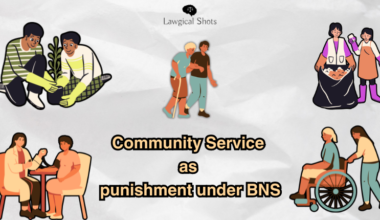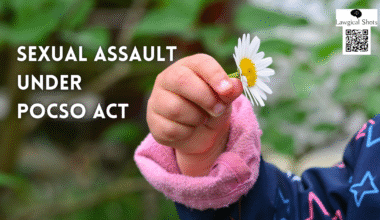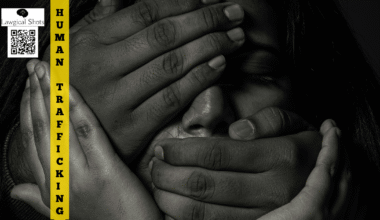When I was yet to become a student of law, what the Television and Bollywood encrypted in my innocent mind as a child was that if a man and a woman take 7 rounds around fire, they are married. If a person mistakenly happens to put a red sindoor on a woman’s forehead, they are married. To break a marriage, reverse pheras seemed to be a legit course of action during childhood. Now, after studying Family Laws, I know the technicalities, that getting married takes much more than that. Unless the essential conditions of a valid Hindu marriage under Hindu Marriage Act, 1955 are complied with, the marriage still remains in question. Here, we explain what Law School made us understand, the very requirements of a Hindu Marriage.
Essentials of Valid Hindu Marriage
The first and foremost essential condition of a valid Hindu marriage under the Hindu Marriage Act, 1955 is that the two parties to marriage, i.e., the bride and groom should be Hindus. The HMA is applicable to any person who is a Hindu by religion. The blanket term ‘Hindu’ includes Virashaiva, a Lingayat or a follower of the Brahmo, Prarthana or Arya Samaj, Buddhist, Jaina or Sikh by religion. On the other hand, it particularly excludes any person who is not a Muslim, Christian, Parsi or Jew by religion. A celebrity actor, who is a Muslim by religion, recently shared about his wedding following Hindu rituals, solemnized in the presence of a priest and going around holy fire and taking the 7 vows with pheras. What’s bizarre is that it cannot be a valid marriage because a Muslim cannot marry a Hindu under the Hindu Marriage Act.
Apart from religion, there are certain other essential conditions for a valid hindu marriage under Hindu Marriage Act, 1955, as discussed below.
Section 5 of Hindu Marriage Act
The Section 5 of HMA lays the essential conditions of a valid Hindu marriage under Hindu Marriage Act. The provision is verbatim below:
“Conditions for a Hindu marriage — A marriage may be solemnized between any two Hindus, if the following conditions are fulfilled, namely:—
(i) neither party has a spouse living at the time of the marriage;
(ii) at the time of the marriage, neither party—
(a) is incapable of giving a valid consent to it in consequence of unsoundness of mind; or
(b) though capable of giving a valid consent, has been suffering from mental disorder of such a kind or to such an extent as to be unfit for marriage and the procreation of children; or
(c) has been subject to recurrent attacks of insanity
(iii) the bridegroom has completed the age of twenty-one years and the bride, the age of eighteen years at the time of the marriage;
(iv) the parties are not within the degrees of prohibited relationship unless the custom or usage governing each of them permits of a marriage between the two;
(v) the parties are not sapindas of each other, unless the custom or usage governing each of them permits of a marriage between the two;”
Essential Conditions of a valid Hindu Marriage under HMA
As stated under Section 5 of the Hindu Marriage Act, 1955, there are certain essentials of a valid Hindu marriage, which need to be fulfilled by the parties. They can be understood in simple language:
- No Bigamy
Bigamy is an offence under the Bharatiya Nyaya Sanhita, and a clear No-No under Hindu Marriage Act. Hence, if a person is already married and gets married a second time, such second marriage stands no validity as per HMA.
- Free Consent
When it comes to giving free consent, the essential conditions of a valid Hindu marriage under Hindu Marriage Act, 1955 states three requirements. It clarifies that none of the parties to marriage should be of unsound mind, unable to consent to the marriage, should not be suffering from a mental disorder making him/her unfit for procreation, and none should be suffering from recurrent insanity attacks.
- Attained Majority
The parties should have attained the age of marriage, which is 21 years for the groom and 18 years for the bride.
- Prohibited Relationship
The parties to marriage should not be in a prohibited relationship. The degrees of prohibited relationship are explained under Section 3(g) of the Act. The rule prohibits marriage among certain relations, including lineal ascendants, brothers-sisters, uncle-neice, aunt-nephew, half brother/sister, etc. However, customary exception is applicable on this condition of valid Hindu Marriage.
- Sapinda Relationship
The essential conditions of valid Hindu marriage restrict lineal descendants from marrying each other – 3 generations on mother’s side and 5 generations on father’s side. Here again, exceptions can be made on the basis of customs and usage.
Effects of the Non-Fulfilment of the Conditions of a Valid Hindu Marriage
Since marriage is a sacred union, what happens if two people get married in violation of the essential conditions of a valid Hindu marriage under the Hindu Marriage Act? Here, Section 11 comes up with an answer. It states that any marriage solemnized in contravention of the conditions under Clauses (i), (iv) and (v) of section 5 of Hindu Marriage Act can be declared as a void marriage with the Court passing a decree of nullity. In other words, if two Hindus get married without compliance with the essential conditions of marriage under Section 5 of HMA, it is fine. However, if one of them (either husband or wife) does not wish to continue the marriage, he/she can approach the Court to end the marriage by seeking a decree of nullity of marriage. Once the same is proved and passed by the Court, the parties will get the status of never being married.








